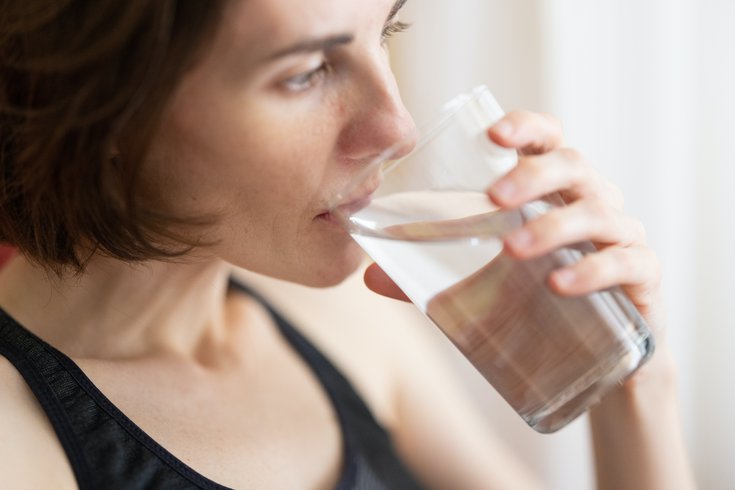
July 19, 2023
 Engin Akyurt/Unsplash
Engin Akyurt/Unsplash
Staying hydrated is one of the simplest ways to prevent urinary tract infections from developing during the summer.
Though summer days are great to enjoy outside when pleasant, many have set records recently for extreme heat. And health experts warn that scorching temperatures can be a breeding ground for urinary tract infections.
UTIs are common and occur when bacteria from the skin or rectum enter the urethra and infect the urinary tract. If left untreated, UTIs can lead to kidney or bladder infections, which can in turn lead to more dangerous health outcomes without medical intervention.
More than 8 million doctor visits are made each year due to UTIs. About 10 in 25 women and three in 25 men will experience a UTI in their lifetime, though there are several risk factors — including past UTIs, age, sexual activity, pregnancy, existing problems with the urinary tract and poor hygiene — that can make them more common.
One of the most common risk factors associated with UTIs is dehydration. "Patients can experience more UTIs in the summer due to inadequate fluid intake, especially in the historic heat waves we've been experiencing," Dr. Maude Carmel, associate professor of urology at the University of Texas Southwestern Medical Center, said in 2022. "Dehydration is a leading risk factor for UTIs."
A 2013 study found that searches for UTI treatments and sales of medications increased during the summer in several countries, including the United States. A 2020 study backed up this claim, finding that warmer weather increases the risk of UTIs in women, leading to a higher risk of health complications associated with UTIs, like bladder and kidney infections.
During the summer, germs and bacteria can more easily enter the urinary tract through sweat and other bodily fluids. Women are at an especially higher risk of developing UTIs as the urethra is much closer to the anus in those with a vagina.
"We think of urinary tract infections a lot of times as just being an infection of the bladder or urethra," Dr. Laura L. Steers, an OB-GYN at the University of Iowa Hospitals and Clinics, told the American Medical Association News Wire. "But when that urinary tract infection goes upwards up the urinary tract, it can start to climb up the ureter and enter the kidney. That's called pyelonephritis (an infection of the kidney). From there, it's very easy for the bacteria to jump into the bloodstream and cause sepsis. And from there, sepsis can cause multiple organ failure, kidney or lung problems — those kinds of things."
UTIs cause inflammation in the lining of the urinary tract, which can lead to pain in the stomach, pelvic area or lower back. Other common symptoms of a UTI include pressure in the lower part of the pelvis, cloudy or foul-smelling urine, incontinence, frequent urination, pain with urination, blood in the urine, fatigue, fever, chills, nausea or mental changes.
The easiest way to prevent UTIs during the summer is to stay hydrated. By drinking plenty of water, people can keep their bladder tissue healthy, dilute urine and lower the concentration of bacteria in the bladder. Experts at Mayo Clinic recommend drinking at least 50 ounces of water per day in order to ward off infections.
Regularly emptying the bladder ensures that urine does not sit in the bladder for too long, which can cause bacteria to grow. It's normal to empty the bladder four to eight times per day. For those who are sexually active, making sure to pee as soon as possible after intercourse can help expel bacterias and keep the urinary tract safe from infections.
Other ways to prevent UTIs include eating foods that contain probiotics, wearing loose-fitting clothing, using unscented bath products, taking cranberry supplements and bathing regularly to ensure good hygiene.
"One should really try to prevent dehydration as much as possible," Dr. Aleece Fosnight, a urologist at Aeroflow Urology, told Well+Good in 2022. "It's much easier to prevent dehydration than to solve it when it occurs. For example, peeing flushes the urethra and forces out unwanted bacteria. If you're not drinking enough wanter, you're not going to be peeing, and this leads to a heightened UTI risk."
Those who think they have developed a UTI should see a doctor or urologist as soon as possible for testing and to learn about treatment options. Often, doctors will prescribe an antibiotic to improve symptoms and eliminate the infection, though patients should continue to stay hydrated to prevent recurrent UTIs.